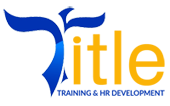| Code | Date | City | Fees | Register |
|---|---|---|---|---|
| ML040 | November 17, 2025 - November 21, 2025 | Barcelona | $ 6200 |
Register Course.. |
| ML040 | December 29, 2025 - January 2, 2026 | Dubai – UAE | $ 5400 |
Register Course.. |
| ML040 | February 9, 2026 - February 13, 2026 | Lisbon | $ 6200 |
Register Course.. |
________________________________________________________________________________________________
Objectives
Dusit Thani Hotel
Dubai – UAE
- The main objective of Shell and Tube Heat Exchangers training course is to equip the attendees with a thorough understanding of shell and tube heat exchangers, including their design principles, operation, maintenance, and troubleshooting .
- Upon completion of the course, participants will be able to:
- Familiarize participants with the concepts and technical terms of the codes.
- Know the basic concepts of the codes and their design fundamentals.
- Understand salient features and differences between codes and standards.
- Know the design of pressure parts and major components.
- Understand the problems in exchangers in-service & corrosion-related issues.
- Learn the maintenance aspects of shell & tube exchangers.
- Get introduced to the repair techniques and considerations.
- Discover the fabrication requirements, assembly, and welding requirements.
- Understand NDE, inspection procedures, and pressure testing.
The Delegates
- The course is tailored for engineers in various roles, such as mechanical design, operations, maintenance, and inspection professionals such as:
- Design Engineers/Managers
- Mechanical Engineers/Managers
- Maintenance Engineers/Managers
- QAQC Engineers/Managers
- Inspection Engineers/Managers.
- Reliability Engineers/Managers
The Contents
- Day 1
-
- Importance of Heat Transfer
- Categories of heat exchangers such as Plate Type/ Double Pipe/ Cooling Towers/ Air Cooled Exchangers
- Modes of heat transfer such as conduction/ convection/ radiation.
- Introduction to Fluid Flow, velocities, and Pressure Loss.
- Applicability of relevant codes under ASME/ TEMA/ API.
- Introduction and Considerations in Thermal Design
- Material selection criteria from ASME Section II.
- Day 2
-
- Heat Exchanger Terminology as per TEMA/ ASME.
- Types such as Fixed/ Floating/ U tube sheet and applications.
- Shell-And-Tube Heat Exchanger parts and detailed function.
- Mechanical design & thickness calculations as per ASME-VIII (Internal/ External pressure) for shells/ bonnets/ tubes.
- Minimum thickness criteria from TEMA.
- Tube Layouts and Number of Tubes in specified Shell Diameter (for ease of maintenance)
- Exercise on (basic) thermal design of the exchanger
- Day 3
-
- Thickness calculation for Tube sheet (Bending/ Shear) from TEMA.
- Minimum requirement criteria for baffles/ tie-rods/ tubes/ flanges/ impingement plates/ etc.
- Baffles clearance and spacing with consideration to flow-induced vibrations.
- Tube Layouts and Number of Tubes in specified Shell Diameter (for ease of maintenance)
- TEMA Standard References.
- General Introduction to API Standard for Petroleum and Natural Gas Industries
- Case study/ exercise on a mechanical design using TEMA/ ASME criteria
- Day 4
-
- Inspection considerations (Radiography/ Ultrasonic/etc.)
- Heat Exchanger Hydrostatic test/ Pneumatic test.
- General reference from ASME Section-V and ASME Section-IX.
- Corrosion and Fouling in Heat Exchangers
- Maintenance and Cleaning Methods
- Preventive & Corrective Maintenance.
- Effects of tube failure/ bad design on the operation of the exchanger.
- Concept of MAWP.
- Day 5
-
- Repair minimum requirement criteria from ASME PCC-2.
- Re-tubing/ tube pulling/ plugging (friction/ mechanical plugs) of tubes
- A case study from ASME PCC-2 philosophy.
- Final heat exchanger selection based on
- Type of Duty
- Operating Limitation
- Materials of Construction
- Safety and Reliability
- Design Methods
- Inspection of new Heat Exchangers during fabrication
- Dimensions and Weight
- Cost
- Delivery
- Review of a real-life typical fabrication assembly drawing/ calculations/ specification datasheet.
Course summary .
The Discount
Free Seats Are Offered
Course File
Download Now!